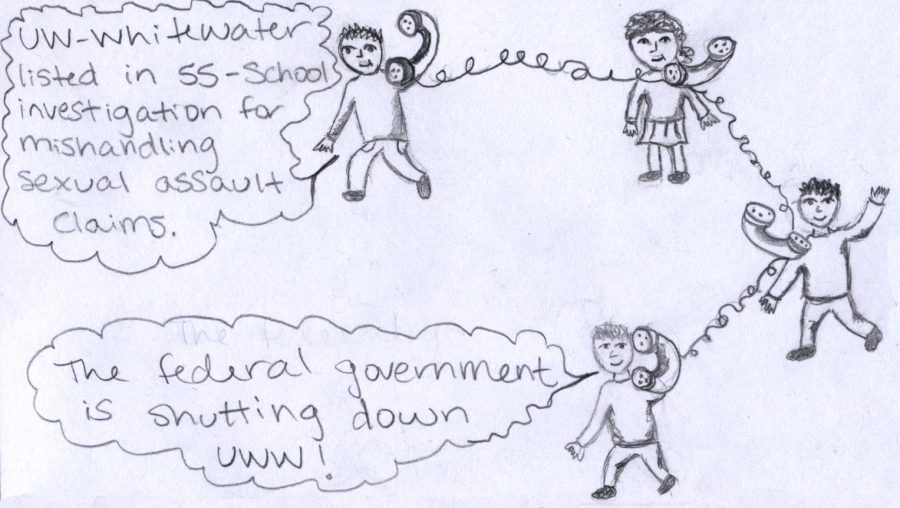May 7, 2014
Royal Purple Editorial Staff Opinion
On Thursday, May 1, the Department of Education released a list of 55 schools that are being investigated on a federal level for the mishandling of sexual violence and sexual harassment claims.
There were 4,706 higher education institutions in the United States in 2012, according to the National Center for Education Statistics. Of those schools, 88 are in Wisconsin.
Of those 88, UW-Whitewater was the only one to be listed in the DOE’s report.
Because we are part of the less than 1 percent of universities in the nation that are being investigated, it is imperative and in the best interest of the university to be transparent during this investigation.
As of now, little information has been shared by the university about the inclusion of UW-W on the DOE’s list.
At the very least, the students and employees of UW-W deserve to be informed as much as possible about this investigation. As soon as any information became available, it should have been brought to the attention of students and employees through email or even a post on the webpage.
Instead, many had to learn about the investigation from outside news sources.
Keeping everyone at the university informed as much as possible about the facts of the investigation is the best way to keep misinformation from spreading.
If there is a lack of correct information coming directly from the university, it creates the perfect breeding ground for false or exaggerated information.
Although protecting the integrity of the ongoing federal investigation should be UW-W’s first priority in this regard, providing timely and accurate information to students and staff should be a close second.
Students at UW-W pay roughly $3,700 for a full-time slate of credits per semester, according to the UW-W website’s tuition calculator. Employees play an integral role in keeping the university running, whether that be through keeping the buildings clean, teaching class or running the various buildings on campus.
The UW-W budget is about $218 million, according to the UW system website. About $70 million of that comes from student tuition fees.
As a group that makes up about 32 percent of its total budget, UW-W should consider what it owes to its students when thinking about how much information the administration will provide them.
Misinformation and tuition costs brings another issue to the forefront of this discussion: the tuition freeze.
In July 2013, Gov. Scott Walker announced a tuition freeze. Within the last couple weeks, after a $1 billion surplus was found in the UW system budget, it was recommended by Walker that the tuition freeze be extended through the 2015-16 school year.
About 10,300 of UW-W’s 12,000 students are from Wisconsin, according to the university’s website. If significant misinformation spreads and enrollment numbers decrease even by a small amount, it could affect the UW-W budget.
With a tuition freeze in place, the university would not be able to raise tuition to be able to make up for that lost tuition money. Unless the Wisconsin budget allotted more money for schools in the UW system, this would lead to a necessity to cut costs in other places in the university.
UW-W currently provides quality education, has expanded its buildings to create a great college experience and has not done anything to alienate its student body.
If the university would like to continue on this path, the best course of action would be to be as transparent as possible during this investigation and promptly provide students and employees with as much information as possible.


